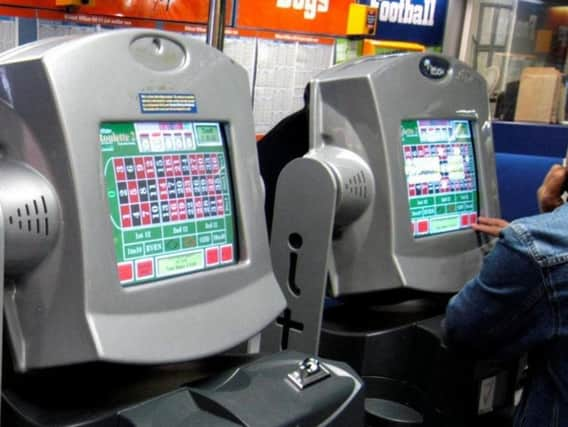Fixed odds betting terminals: What are they? Why are they controversial? What's the Government doing about the issue?


What are fixed odds betting terminals?
Fixed odds betting terminals (FOBTs) are electronic machines, in betting shops, which contain a variety of games, including roulette. Each machine accepts bets for amounts up to a pre-set maximum and pays out according to fixed odds on the simulated outcomes of games.
Up to four machines can be sited on betting premises. The Maximum stake on a single bet is £100, maximum prize is £500.
Why are they so controversial?
Advertisement
Hide AdAdvertisement
Hide AdCritics point out it is possible to lose large amounts of money and claim the machines have a causal role in problem gambling.
The industry says there is no evidence of causal link between FOBTs and problem gambling. It also claims reducing the maximum stake to £2, as some critics campaign for, would put betting shops and jobs at risk.
Academic research suggests the causes of problem gambling are not well understood.
What’s the Government doing about the issue?
In October 2017, the Department for Digital, Culture, Media and Sport (DCMS) announced a range of proposals to strengthen protections around gambling. These included lowering the maximum stake on FOBTs to between £50 and £2. A consultation on the proposalsclosed in January.
On May 17, 2018, the Government announced that the maximum stake on FOBTs will be reduced to £2 from £100.